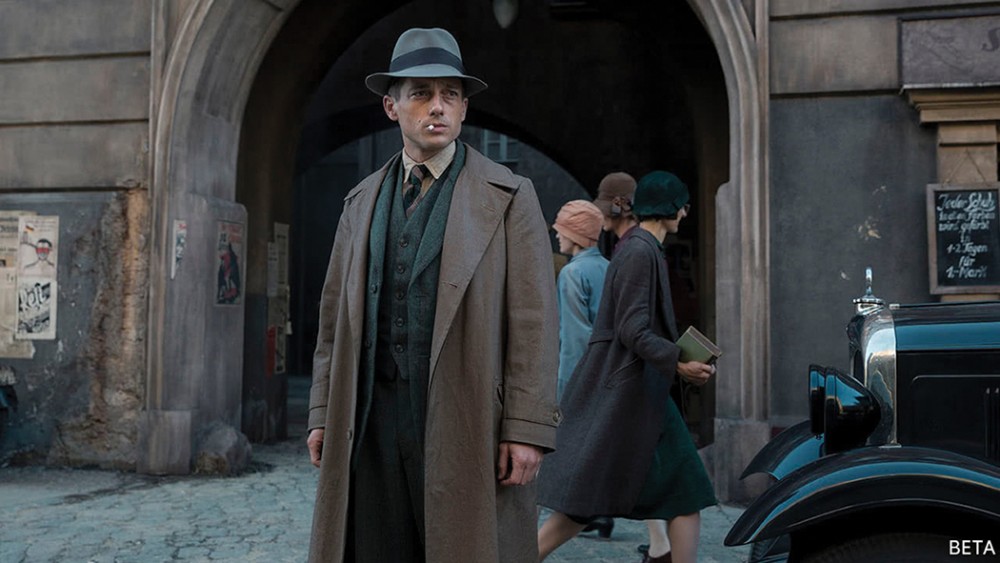Slow Burn and Babylon Berlin offer historical lenses on our troubling present
A podcast about Watergate and a TV drama about Weimar Germany remind us that we don't know how our own story will end.

When we look back on our current political and cultural situation and its particular stew of corruption, authoritarianism, populism, and racism, what moments will be worth remembering? Will we recognize history as it is being made?
Two recent pop-culture offerings address these questions by looking backward in order to help us look forward. One is Slow Burn, an eight-part podcast about the Watergate scandals of the 1970s, created for Slate by Andrew Parsons and Leon Neyfakh, who also hosts the show. Even though the creators turn to the past for insight into our own moment, they keep the contemporary parallels at arm’s length in order to explore less well known angles on the Watergate era. Using original sources, present-day interviews, and careful narration, each episode tries to convey what it felt like to live through the scandal without the certainty of hindsight.
Without that certainty, details shift in importance. Take the first episode, “Martha,” about Martha Mitchell, the wife of President Richard Nixon’s attorney general and erstwhile campaign manager, John Mitchell. As is now largely forgotten, Martha was kidnapped and drugged to prevent her from talking about the scandal to the press in the lead-up to the 1972 election. Martha was a personality most Americans would have known well in the early 1970s but almost no one remembers today.
Read our latest issue or browse back issues.
The third episode, “A Very Successful Cover-Up,” explores why so few Americans cared about the scandal prior to the congressional hearings in the summer of 1973. It’s a depressing reminder that long before social media most Americans were capable of distracting themselves from political truths that in retrospect seem unavoidably obvious.
The most painful episode for me was episode five, “True Believers,” about Nixon loyalists who stood by the president despite overwhelming evidence of his corruption. It features reporter Gail Sheehy describing opinions she encountered at a bar in Astoria Queens (a few blocks from where I live, which might explain why it hit me so hard). Across the board, she found that Nixon’s supporters believed the Watergate hearings were a liberal conspiracy to take down a strongman who was willing to clean up the country. She found them “angry, demoralized, and disconcertingly comfortable with a police state run by Richard Nixon.”
In this case, the lines of connection between the Nixon era and our own are fairly easy to draw: some of the young men in the bar could easily have been Trump voters in 2016. The demoralized anger Sheehy uncovered in Queens has only grown more virulent.
But the podcasts do not so much point to the link between one scandal and another as reveal how the outcome of Watergate was uncertain until the moment when it wasn’t. The show fosters profound humility with regard to what we think we know about any political moment—including our own.
Babylon Berlin, a drama imported from Germany and available on Netflix, extends that humility to the time of Weimar Berlin in 1929. Plenty of pundits have drawn comparisons between the global rise of right-wing populism today and the rise of European fascism in the mid-20th century. Babylon Berlin explores these connections through fiction, taking viewers into the tumultuous lives of people in the years before the rise of the Third Reich. Babylon Berlin draws its pathos from the fact that no one knows what is coming.
The series follows Inspector Gereon Rath, a survivor of World War I sent from Cologne to the capital to investigate a pornography ring that is blackmailing his politician father. Before he can unpack his bag, he is drawn into an international conspiracy involving Russian gold stolen by the Bolsheviks, a Trotskyite plot to overthrow Stalin, an underground sex club run by an Armenian gangster, experimental psychoanalysis, and the rise of the Black Reichswehr, an illegal secret paramilitary organization determined to overthrow the republic and return the exiled kaiser.
It is a lot for Gereon to keep up with, and the viewer might feel the same way (especially following along with English subtitles). Gereon’s partner in trying to untangle the web is Charlotte Ritter, a working-class girl determined to move out of her squalid tenement even if it means turning tricks for the Armenian gangster after her day shift as a police secretary.
The show challenges our confidence that we can easily distinguish the good guys from the bad guys. A group of young socialist demonstrators wins our sympathies with their appeals to equality and dignity in the face of radical class inequality. But as their socialism morphs into Nazism, we recoil. Gereon’s colleague and eventual nemesis, Bruno Wolter, is a hard-line right-winger who should be easy to despise. But he is also a sympathetic father figure for Gereon’s nephew and the only person to help Charlotte in a moment of need. Stereotypes are never allowed to stand in for real characters. Even though we know where history is headed, our sympathies get confused, just as they might have if we’d been living in Berlin at that historical moment.
Both Slow Burn and Babylon Berlin suggest, in very different styles, that one of the most important things to learn from the past is just how hard it is to take the measure of an age when one is in the middle of it. Helping us see this truth in two different historical moments, they sensitize us to the hard work of paying attention to our own moment, without imagining we know how the story will end.
A version of this article appears in the print edition under the title “What they knew when.”







